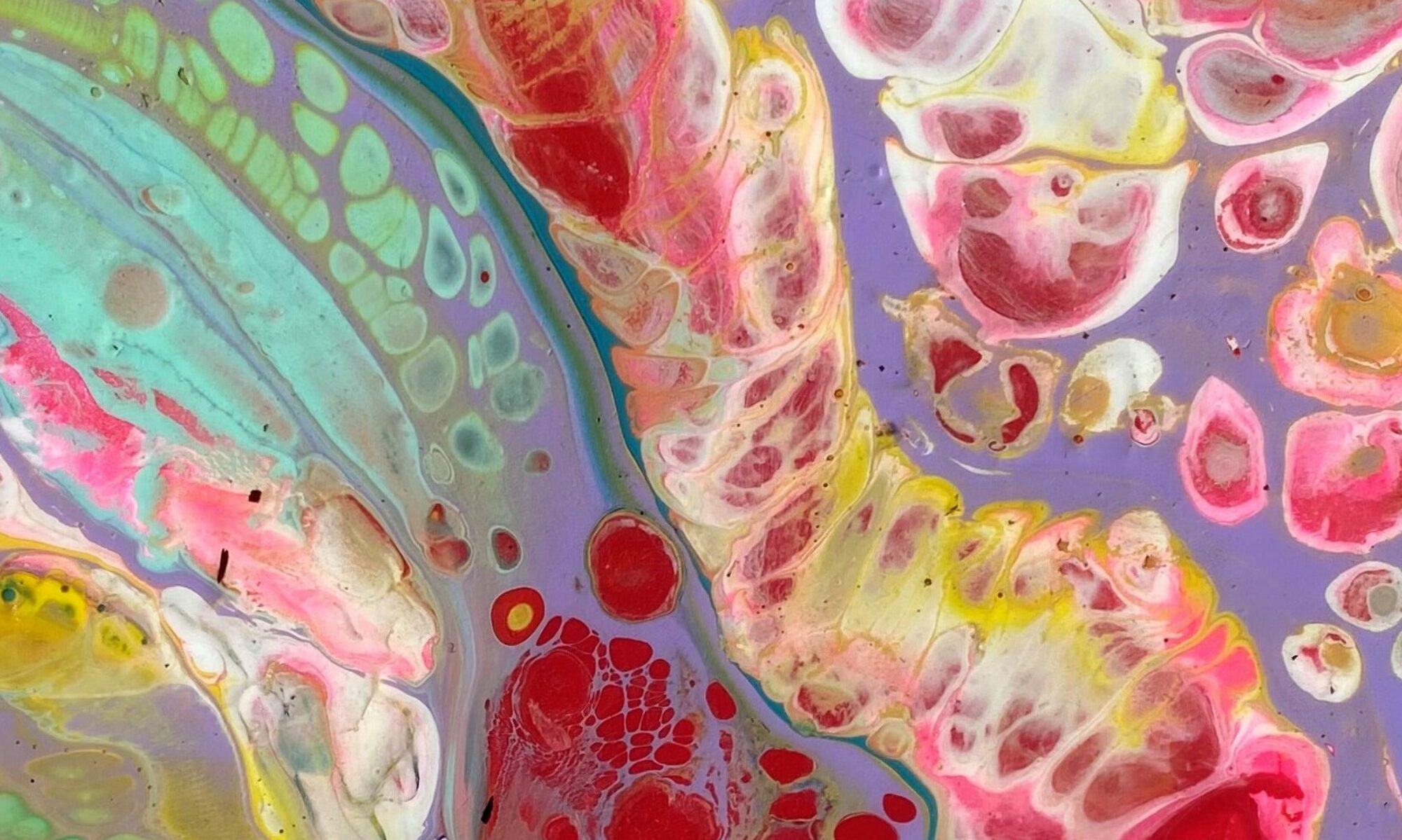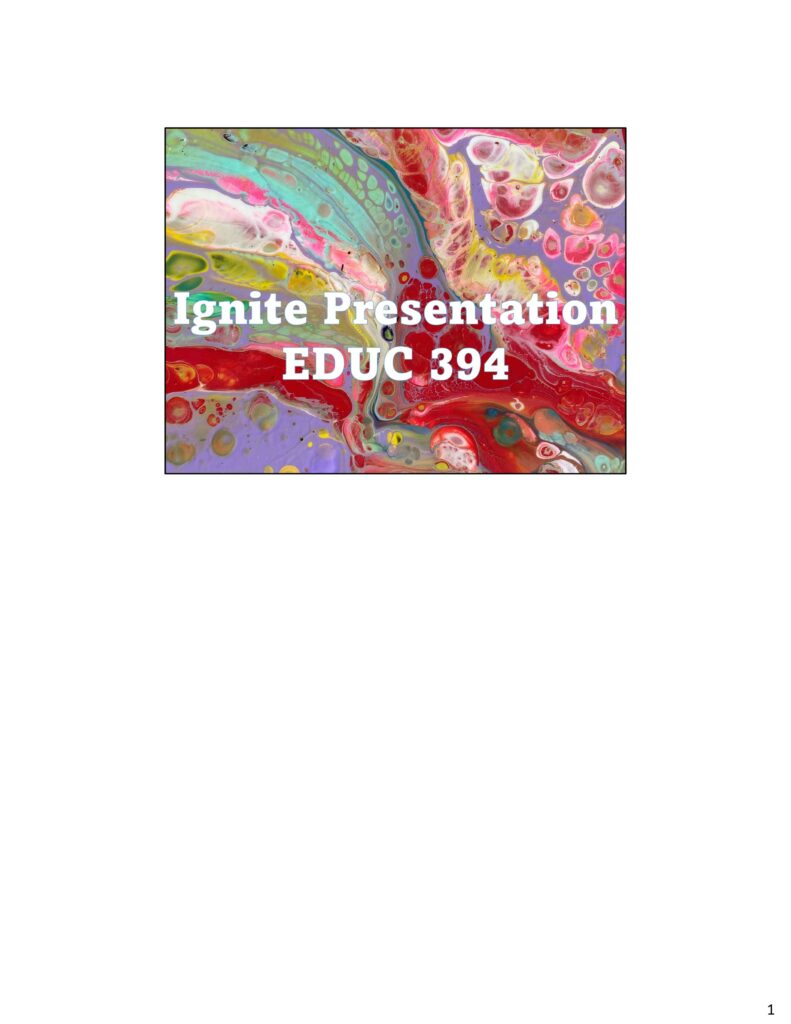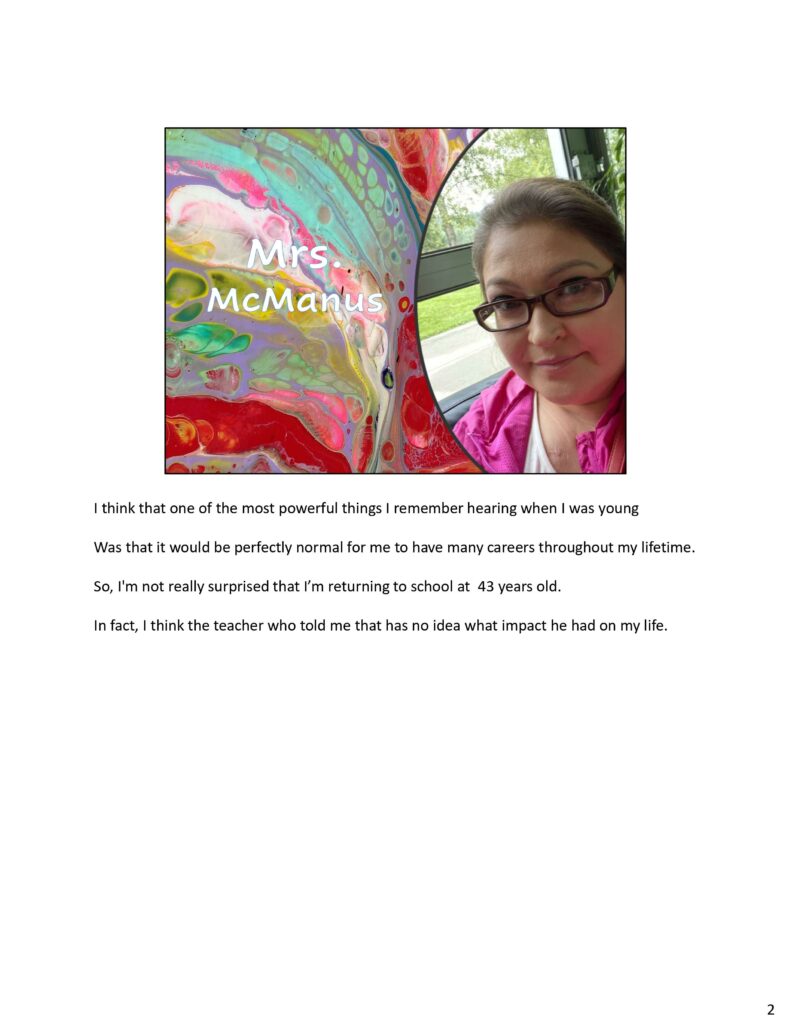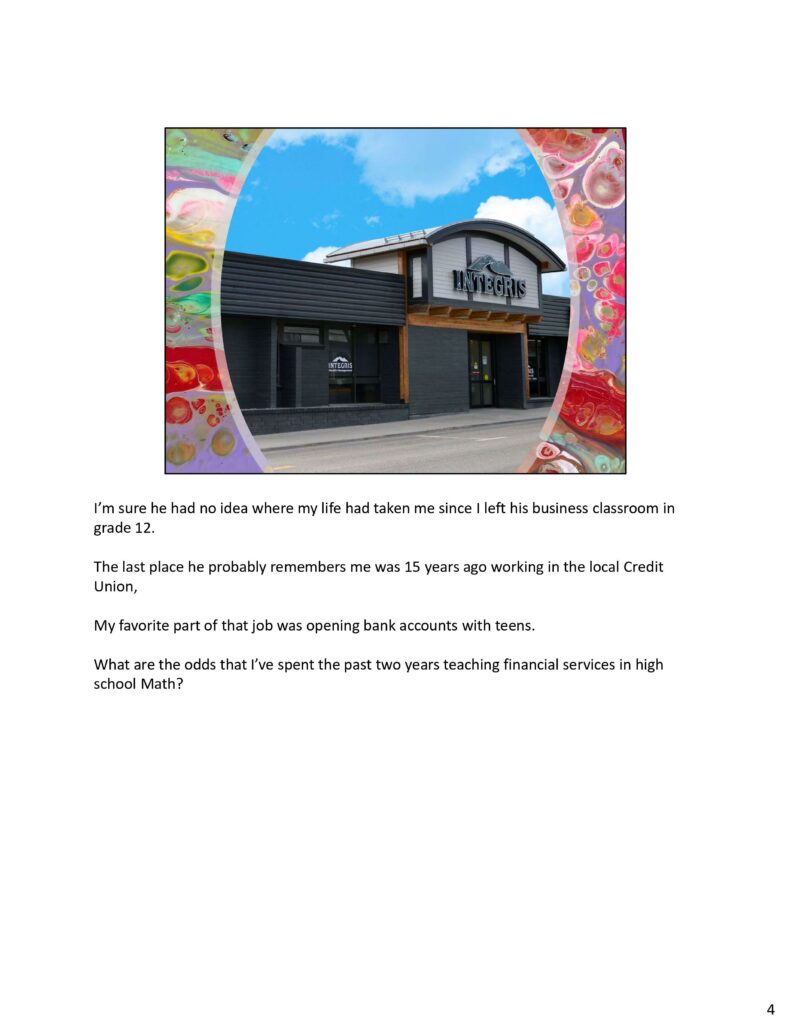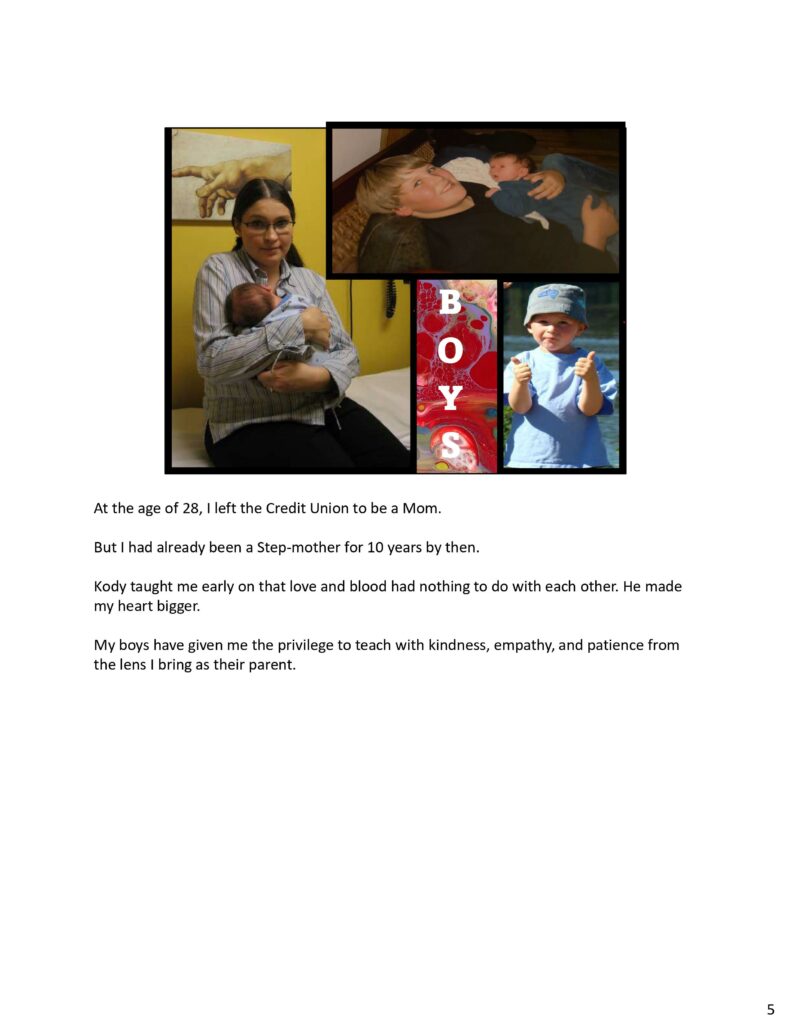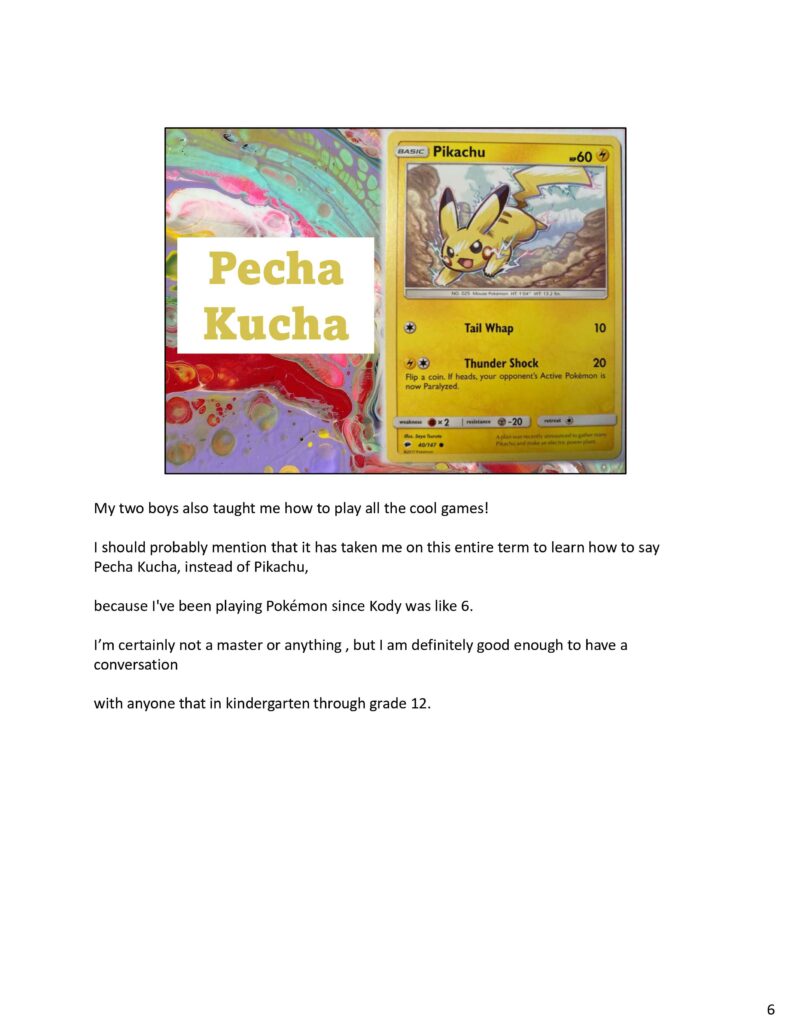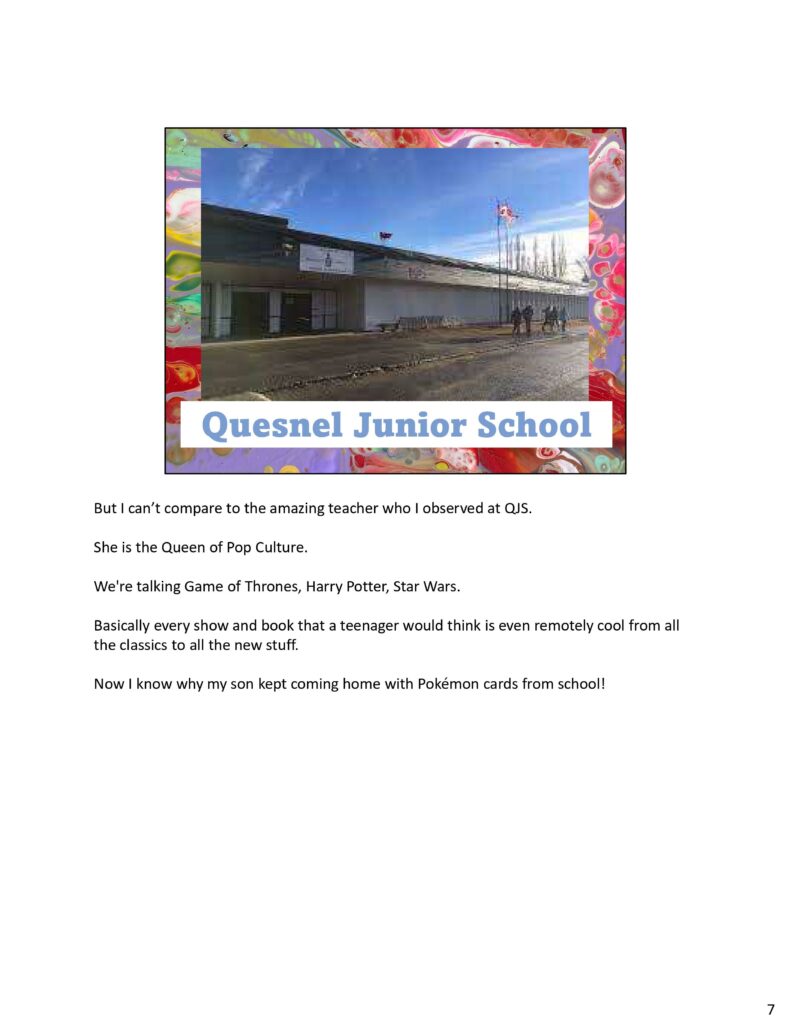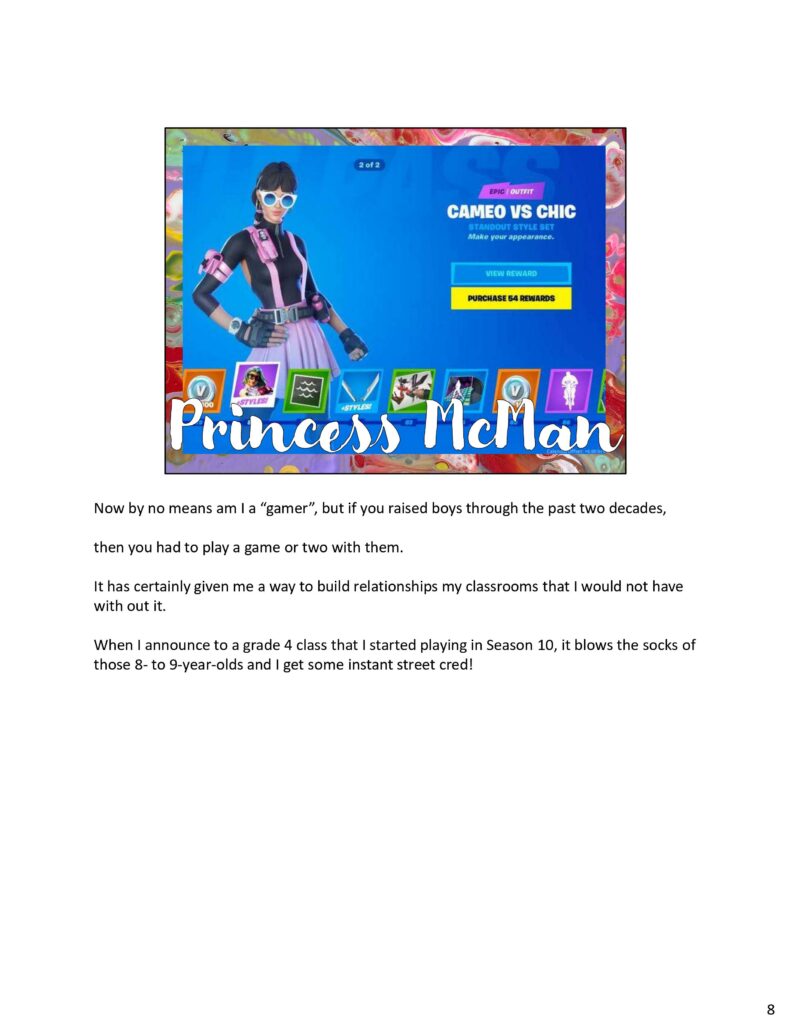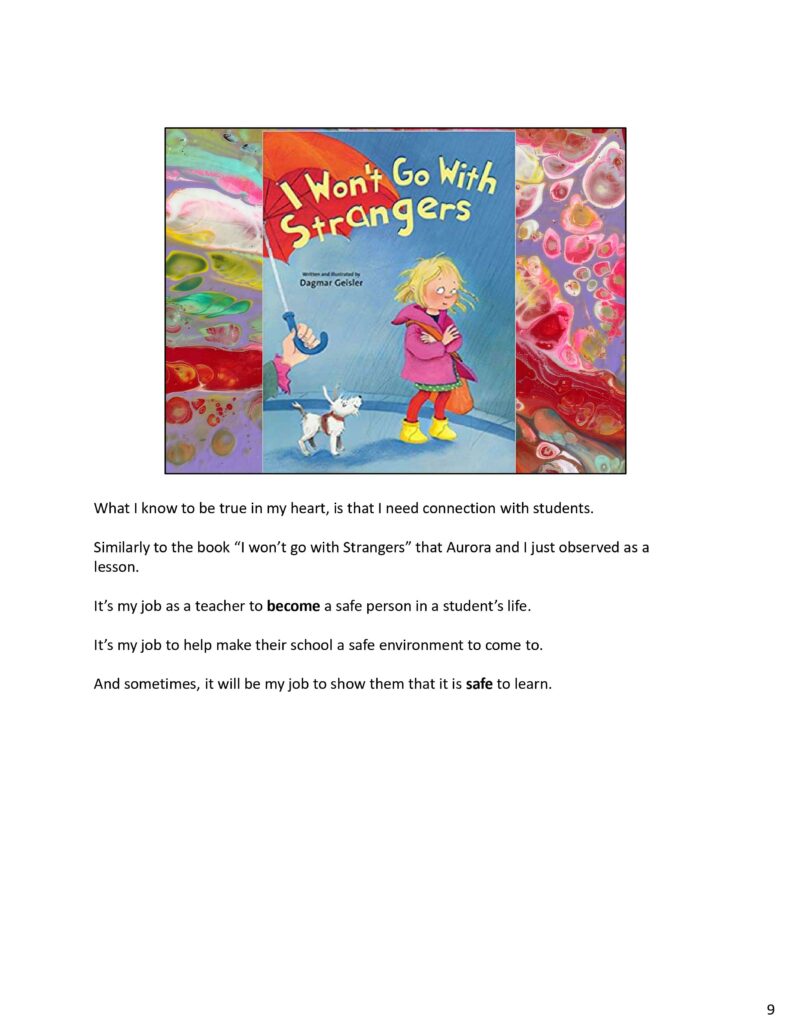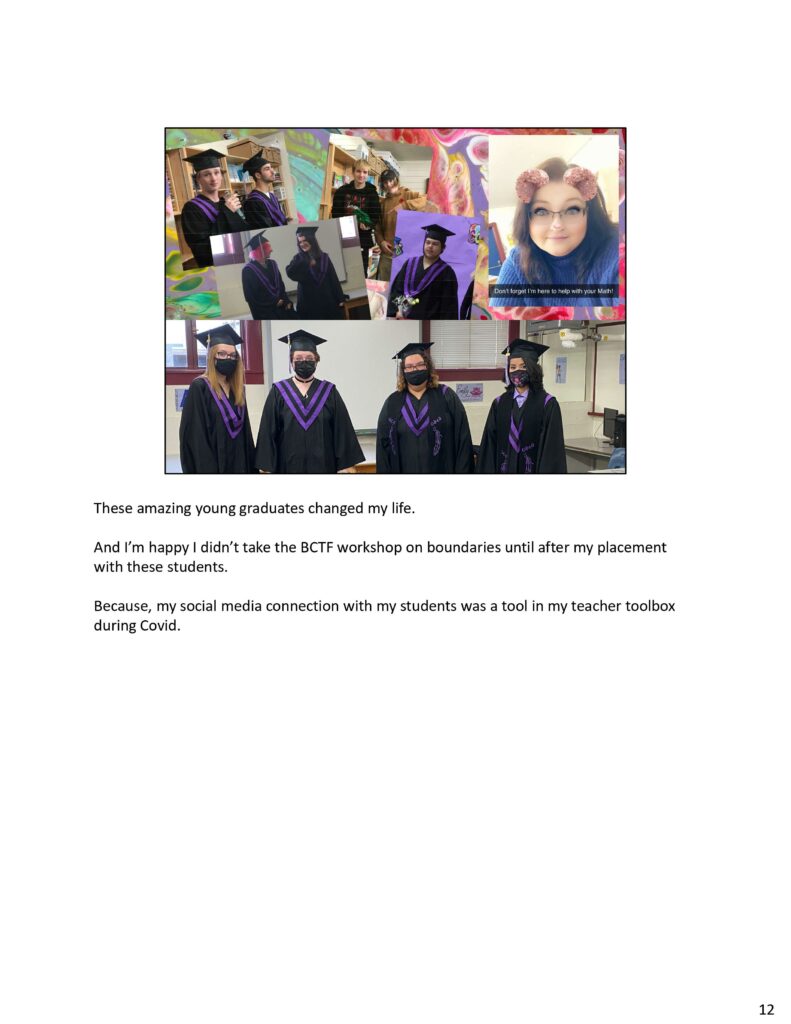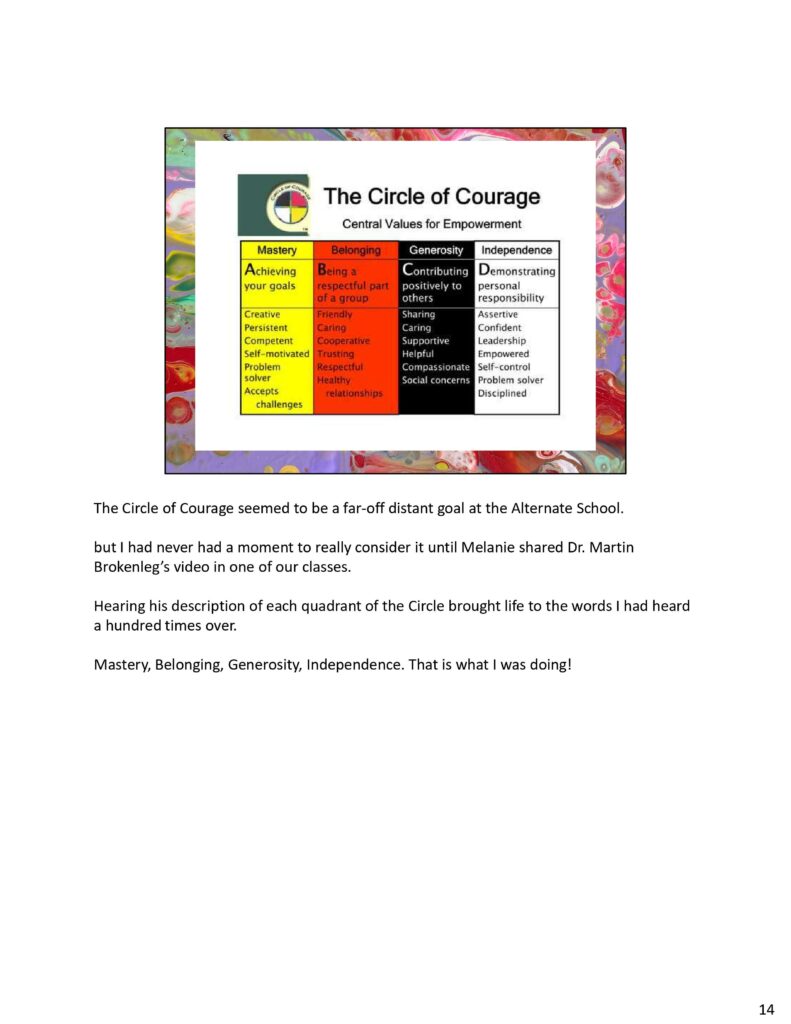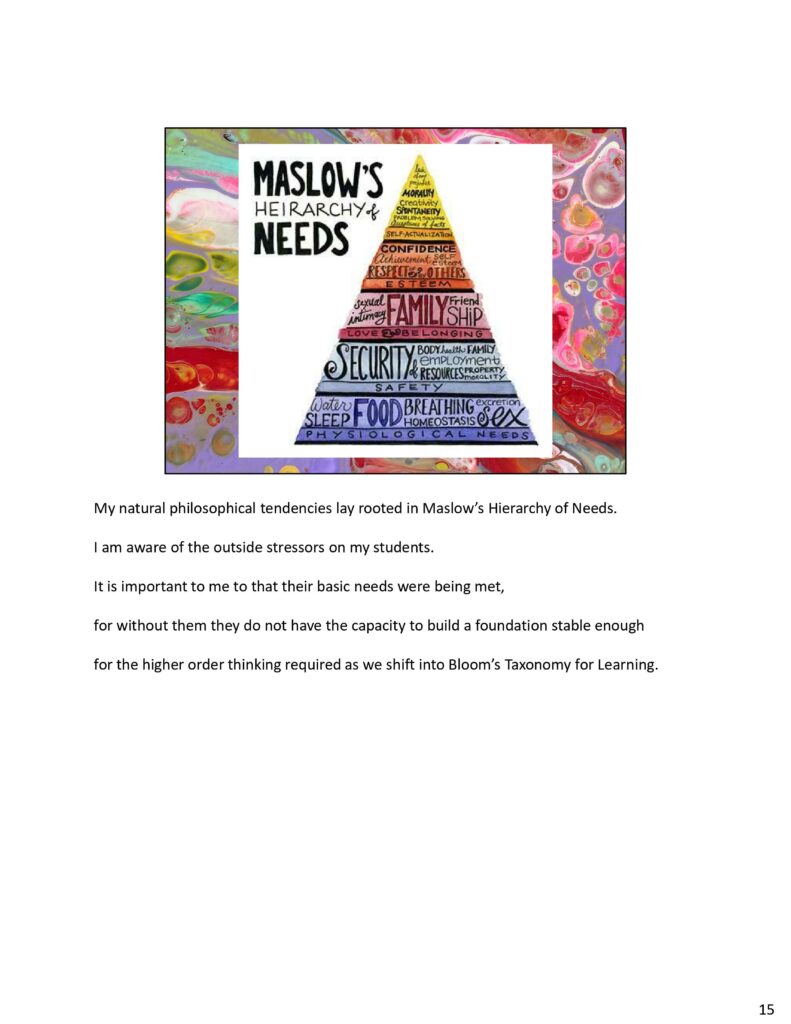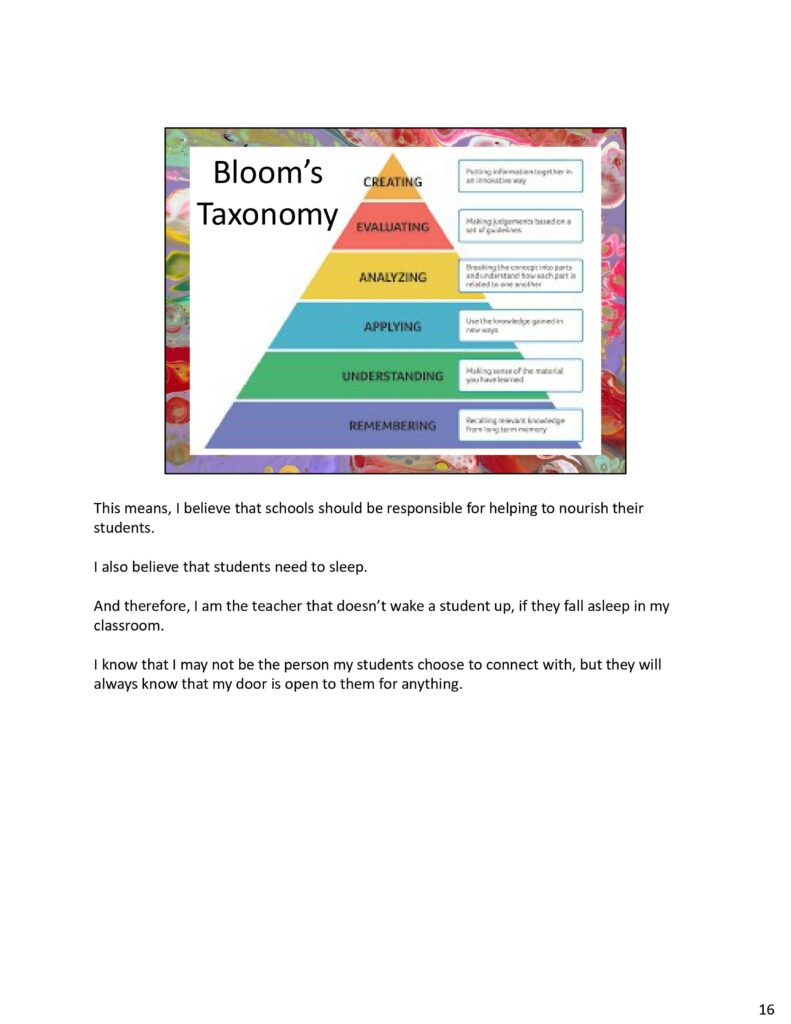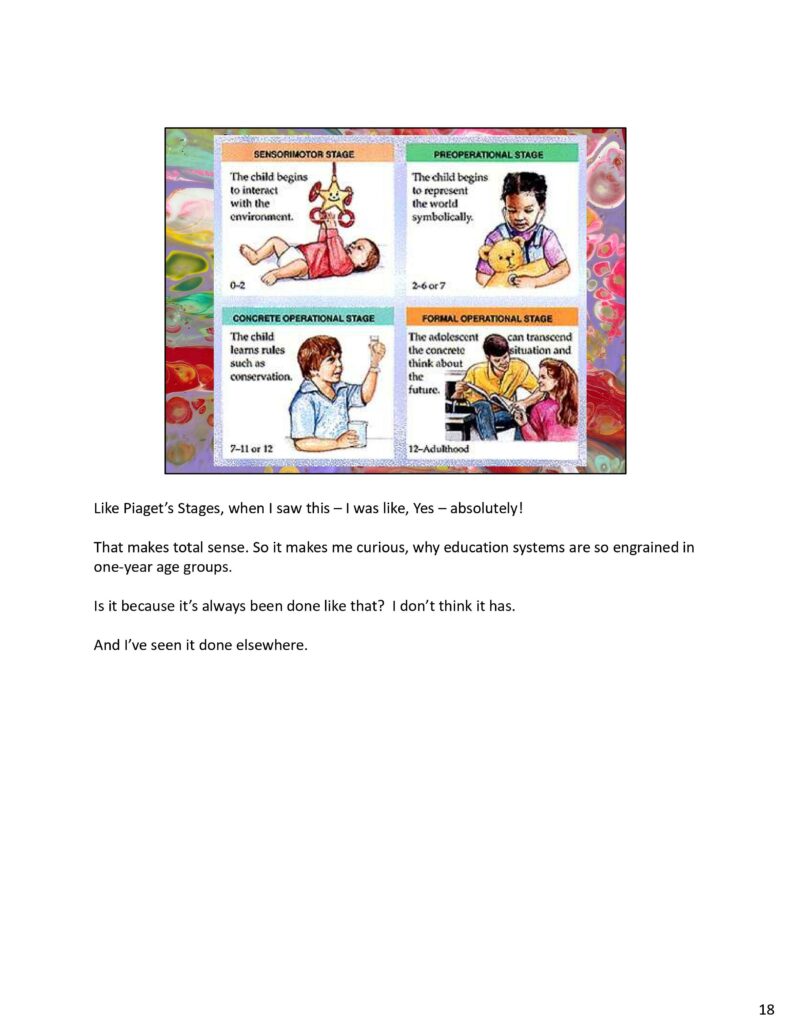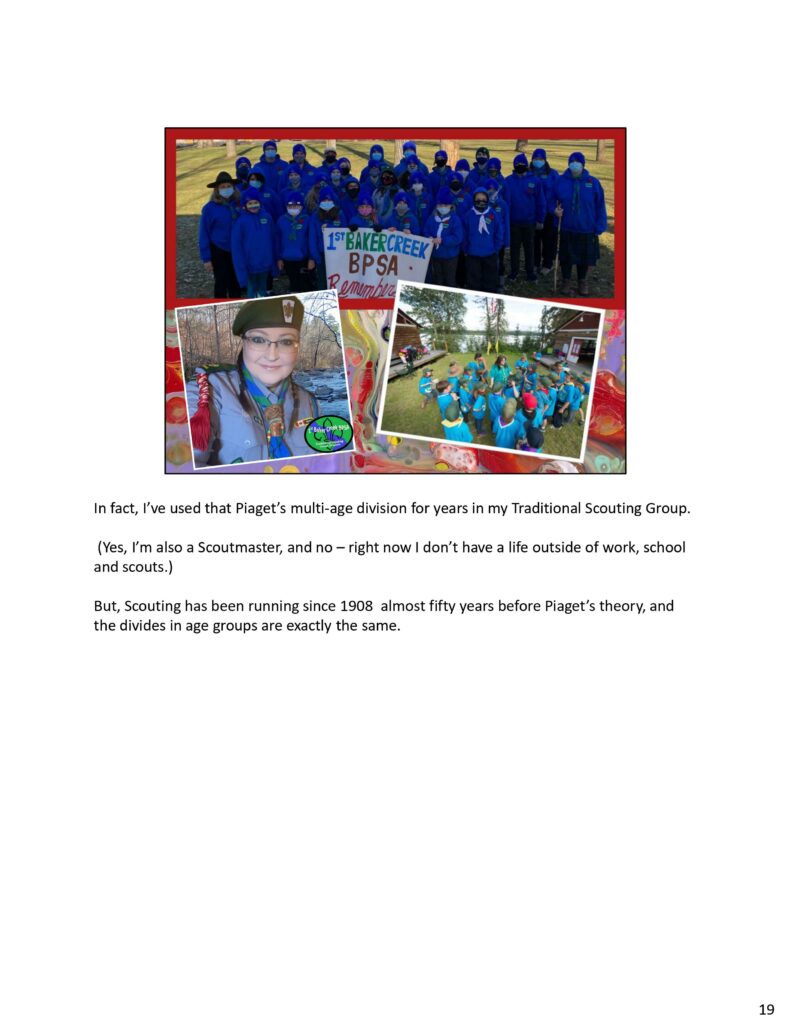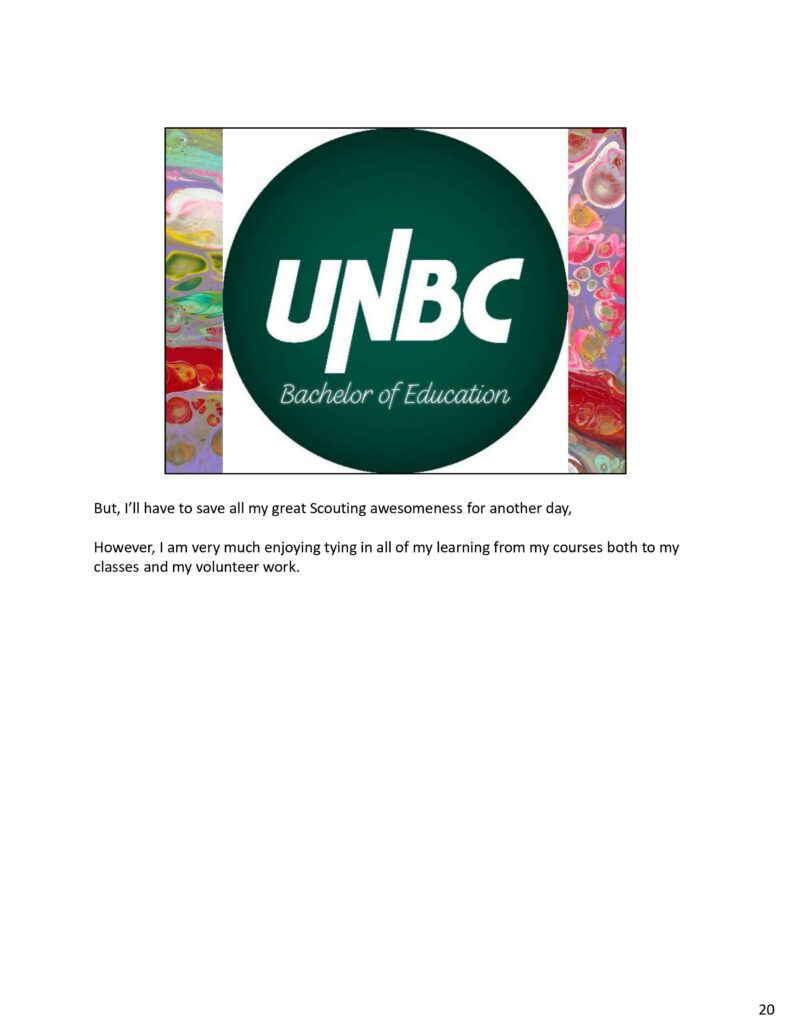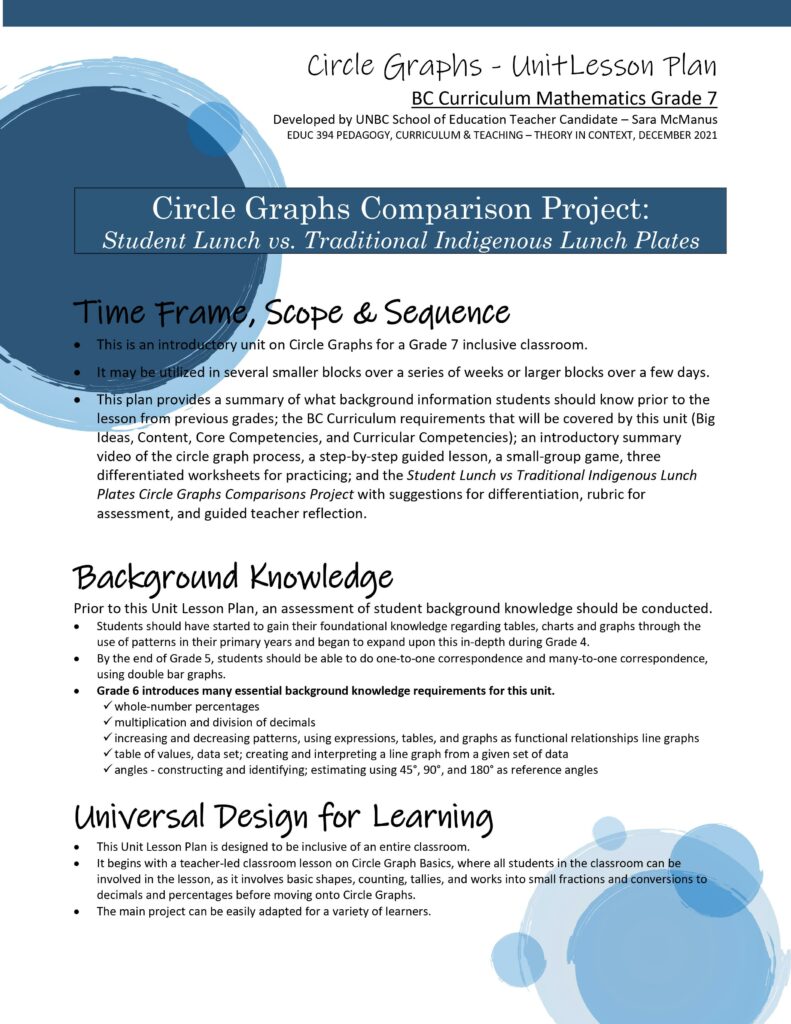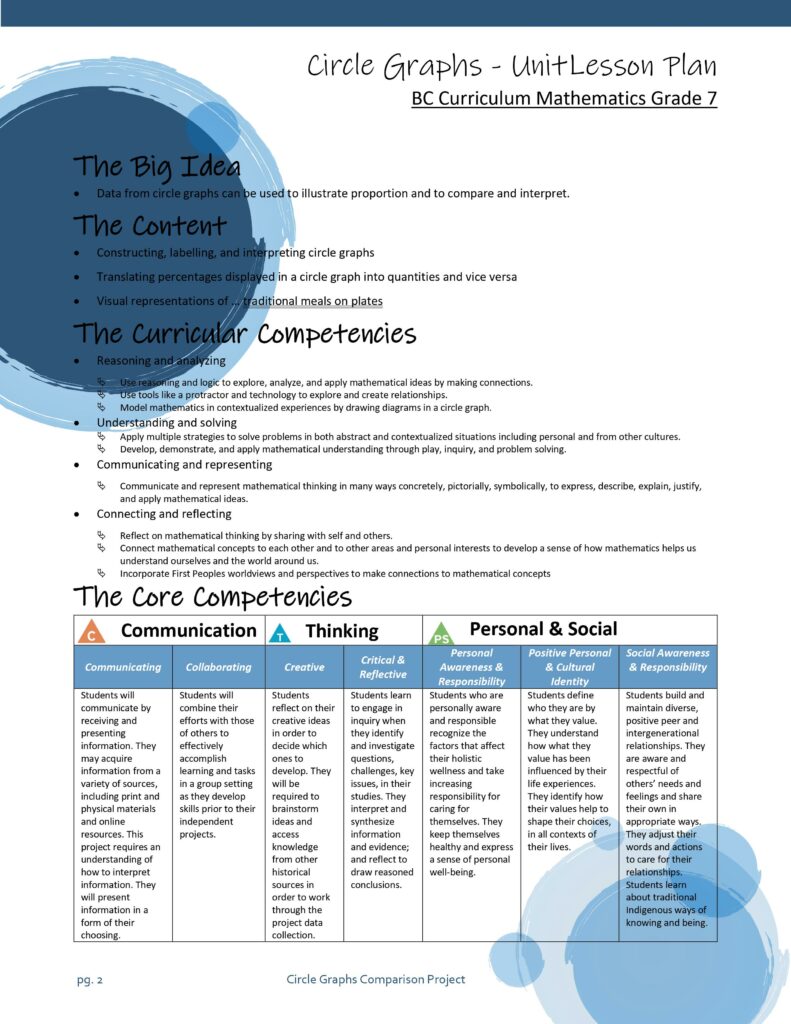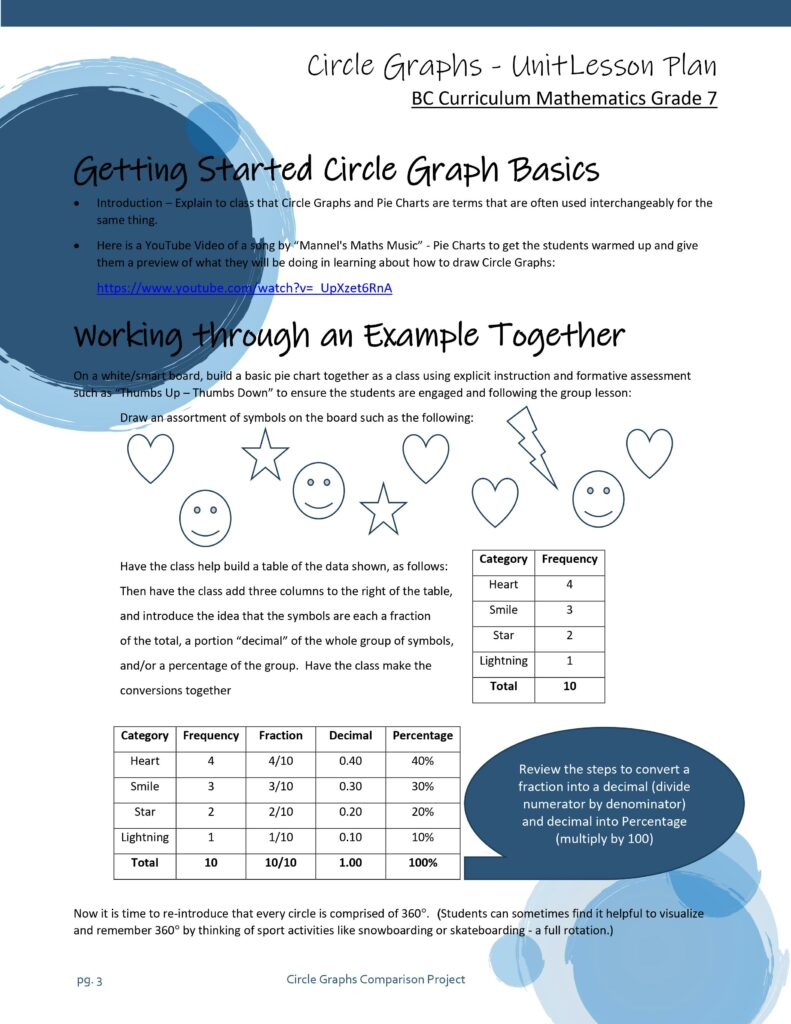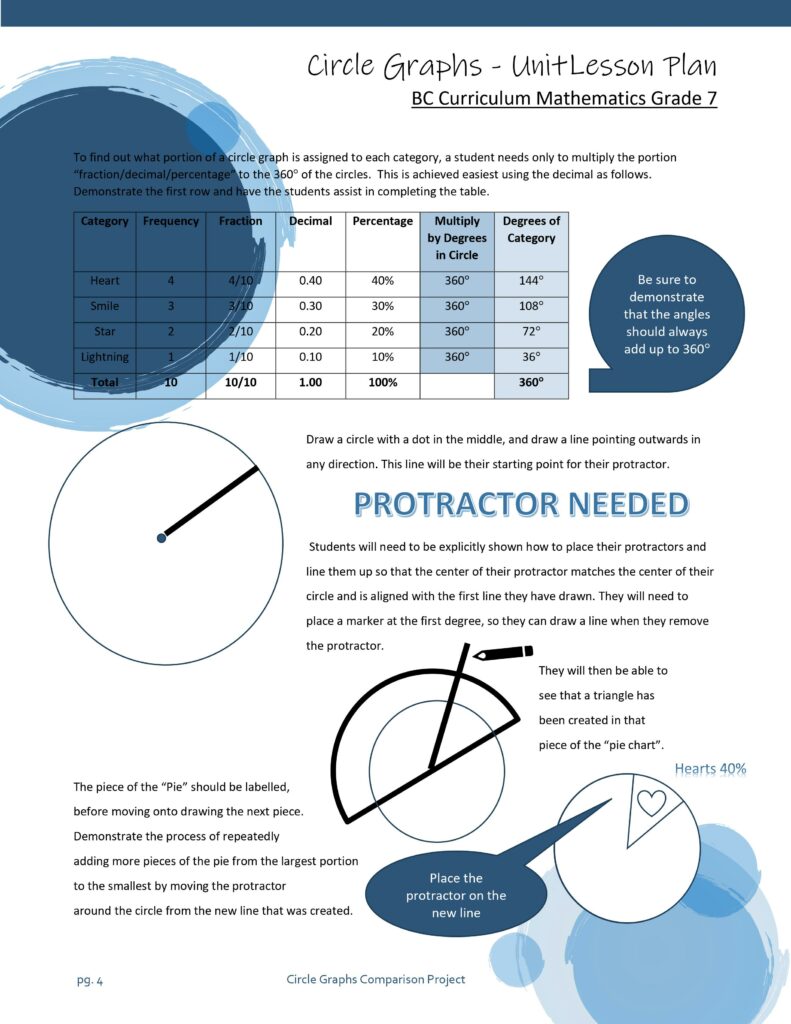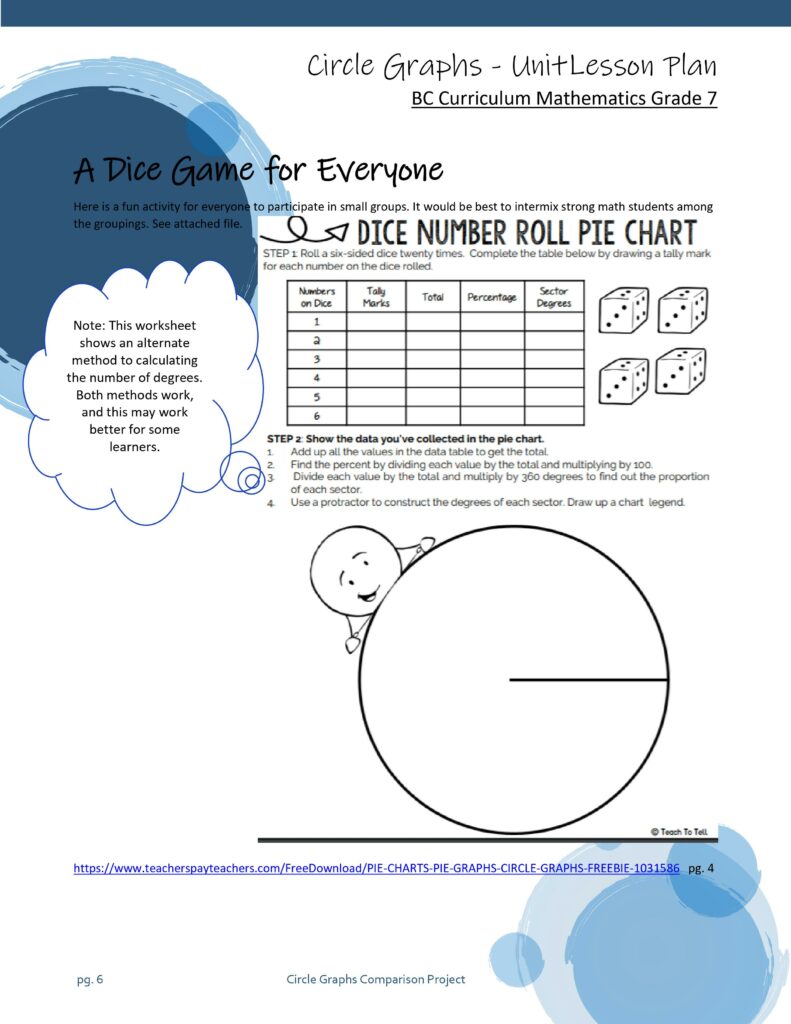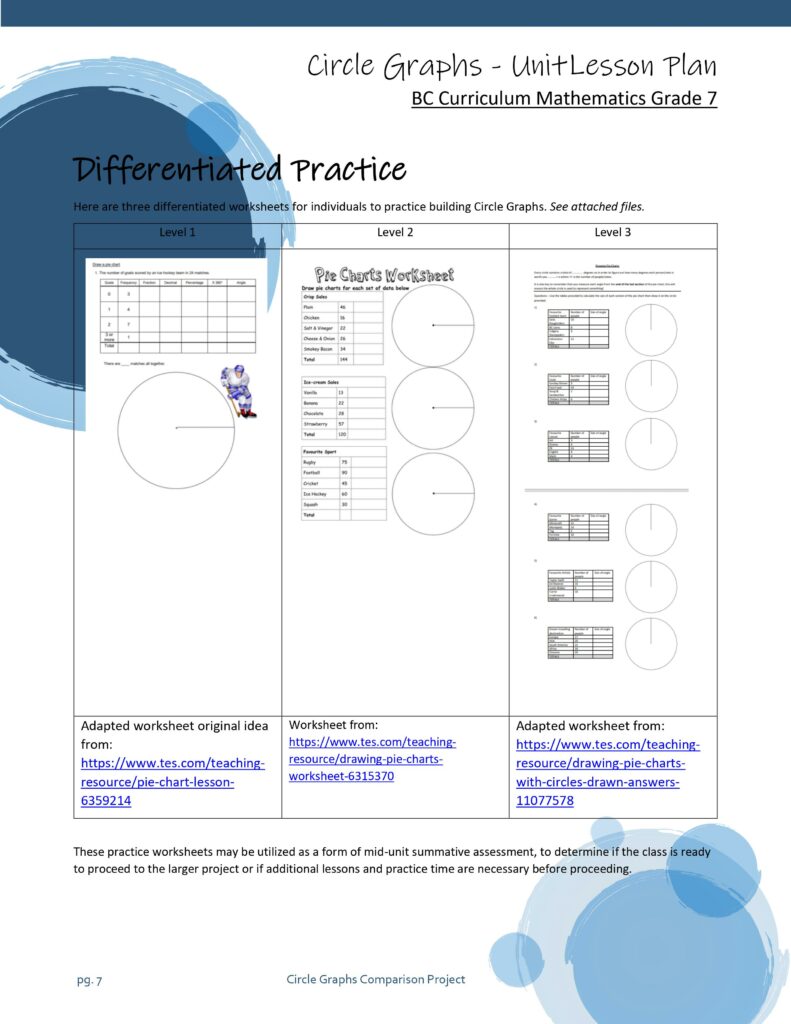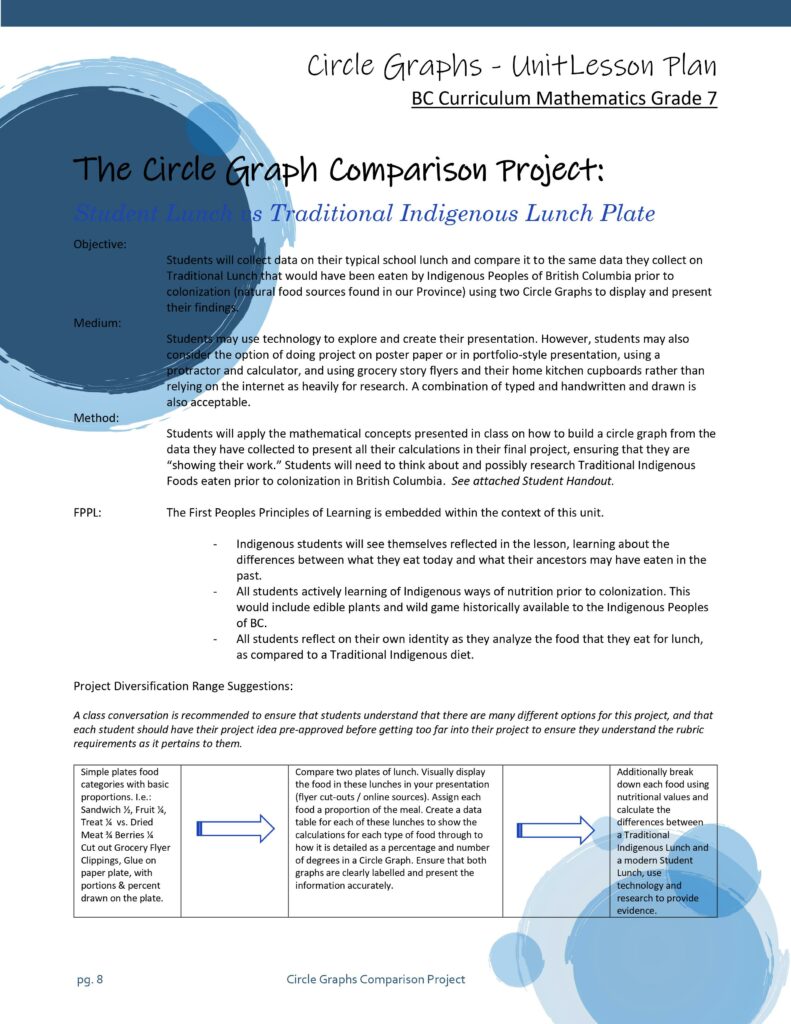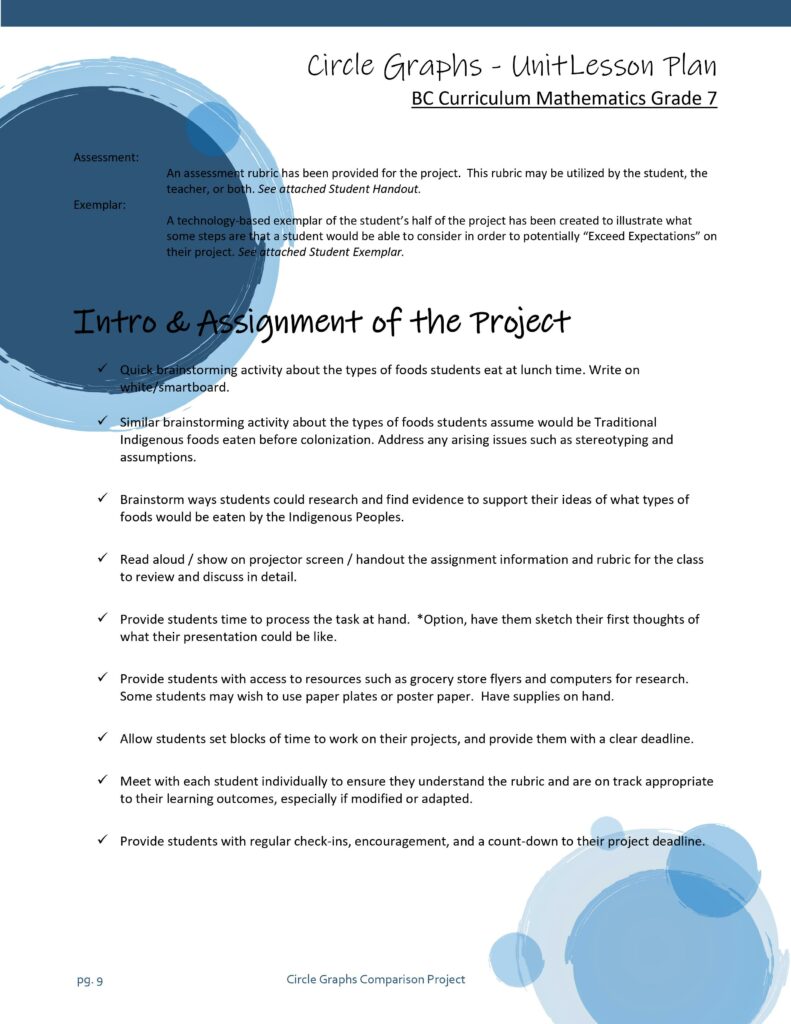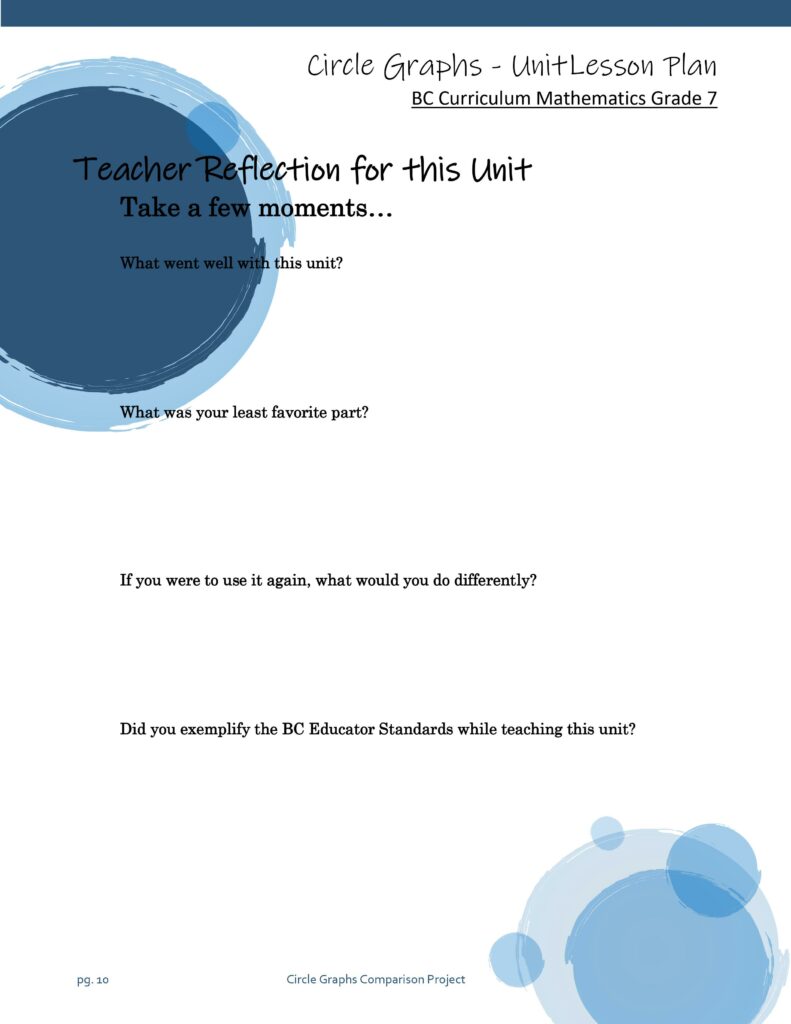PEDAGOGICAL PHILOSOPHY STATEMENT
Sara McManus
School of Education, University of Northern British Columbia
EDUC 393: Foundations of Education
Melanie Baerg, M.Ed. – Lecturer
December 6, 2021
“The world is better because you are in it” is what I want every student to know at the end of their time with me. In other words, I want them to know that they are seen, heard, and valuable in this world, that their presence matters and that they can make a positive difference. Through my emerging practitioner beliefs as a new Educator in British Columbia, I strive to achieve this goal. As a learner myself, I am discovering the foundations of my personal teaching pedagogies through my new responsibilities, growing knowledge, lessons of relationships, desire to create safe and open learning environments, developing teaching practices, aspirations to increase learner outcomes, and hopefulness for a long-lasting practitioner impact for myself.
I am grateful to be bound by the nine BC Educator Standards (BC Teachers’ Council, 2019) and the nine points of the BCTF Code of Ethics (BC Teachers’ Federation, 2021) which sets out a framework for me to build my responsibilities in my teaching practice. Together these eighteen mandates will aid me in ensuring that I am always vigilant in doing my best and expecting the same of others. Within the description of the ninth BC Educator Standard, it is written that “Educators critically examine their own biases, attitudes, beliefs, values, and practices to facilitate change.” I am eager to accept this responsibility as I learn more about Indigenous ways of knowing and being and historical events that have impacted the people, place, and land where I live and teach. During the first term of my Teacher Certification program, it has been through the close examination of the First Peoples Principals of Learning (FNESC, n.d.) and Dr. Tina Fraser’s Nine R’s (Fraser, 2021) that I have been able to recognize that I have a natural strength to teach using these methodologies.
Being a life-long learner through professional development has always been a significant aspect of who I am. A person should always try to do their best; this involves keeping an open mind to new ideas and continual learning. As an educator, professional expertise is required. Students, parents, colleagues, and administrators look to teachers as the knowledge keepers of classrooms and the world. Elementary school teachers, in particular, must be a Jack-of-all-trades generalist of teachable subject areas. It is implied that intermediate-level teachers will have the broadest assortment of knowledge, as they will potentially teach the curriculum assigned to their classroom grade level(s), as well as that of all preceding years beneath them. They do this as the breadth of Social Studies, Science, English Language Arts, Physical Education, Math, and Fine Arts simultaneously increases. Elementary stream educators must also be experts in literacy and numeracy to develop these foundational skills at any age, and therefore I am keen to dive deeper into these two subjects to advance my skill and knowledge base. During the EDUC 393 lecture on Literacy is a Social Justice Issue, I noted, “Every student can still have value in our world if they cannot read, but they will have a much more difficult time in their life if they are illiterate” (Baerg, 2021). From my teaching experiences, I believe that teachers do not need to know everything, but they need to source the knowledge quickly, obtain resources, and learn as they teach to be successful.
During my interview for a non-certified Teacher Teaching on Call position, I asked my interviewer if he had one piece of advice to a new teacher, what would it be? His reply was, “RELATIONSHIPS!” I whole-heartedly understand and believe that now. Relationships are one of the foundations of my personal teaching pedagogy. I have witnessed both the impacts of positive and negative relationships on the ability of a student to learn. Positive relationships between students and teachers show improvements “in both the short- and long-term with improvements on practically every measure schools care about” (Sparks, 2019). Students who feel safe in a classroom will engage in learning. In my lived experiences, this is especially true for Indigenous students and those who have experienced trauma. As I learn about boundaries between teachers and students, I can recognize more potential situations that could be misconstrued or viewed as unethical and the implications for Educators. I am developing a new sense of personal boundaries with a lens balanced between relationship building and the perspective of others, which will always be outside of my control.
A second foundation to my personal teaching pedagogy is my inclusive educator spirit. I believe that every child has value and a place in my classroom to learn. I know there is still a vast quantity of information for me to consume to be better prepared to serve a wider variety of learners in my future classrooms, but my instinct has always been to include everyone, and I am appreciative to now be able to name what I do, as Universal Design for Learning. My strategy mirrors that of UDL’s in that I like to find out what my students know (access their background knowledge), then I present the information in a variety of different ways (multiple means of representation), then they are given time to process and can choose how to return their work (opportunity to present in different ways) (Litz, 2021). In addition to learning diversity, my present and future classrooms are a safe space for students of diverse ethnicities, religions, cultures, languages, socio-economic factors, LGBTQ2S+, and physical and mental health diversity. Schools and classrooms should be warm and inviting to students, families, and communities. There should not be barriers to entry, and staff should be accessible when families need support.
Similarly to relationships, I believe that the needs of students, as described in Maslow’s Hierarchy of Needs (Hopper, 2020), must be met before learning can indeed occur; this is the third foundation of my personal teaching pedagogy. Students who are under toxic stress cannot learn, and “the result can be damaged, weakened systems and brain architecture, with lifelong repercussions” (Harvard University, n.d.). School Districts and the Provincial Government of BC should provide adequate access to food, learning, social-emotional, behaviour, mental health, and physical health support for all learners; and schools should be responsible for ensuring the distribution of these supports to create a positive school climate and culture. Therefore, teachers and support staff could feel safe in their ability to portray the needs of the students accurately and only then would the movement to an inclusive education system be possible.
In life, I have learned that I am in constant motion. Learning something new tomorrow may change my entire perspective, and who I am as a teacher may completely be altered. I feel uncomfortable selecting labels of historical pedagogies and educational theories, which I know require much more research than I have afforded them. However, I can see myself reflected in Progressivism, Perennialism, Essentialism, and Social Reconstructivism. Here are some key things that I believe in that make it hard to choose between the philosophical perspectives of education: I like social learning and think that modelling and mentorship are fundamental in all stages of learning. I also believe that everyone needs to master the same foundational skills in literacy, numeracy, and other core subjects. I believe this happens best through teacher-driven initiatives and explicit instruction before student-centred activities, exploration, and discovery. However, student-centred activities do help to develop internal motivation and a student’s sense of self. I appreciate good quality scope and sequence resources. I regularly use small rewards, like stickers in my classroom; however, I would not consider myself a heavy-handed disciplinarian and do not believe in corporal punishment. Additionally, I have discovered a few things about my teaching practice over the past few months. I prefer the teacher’s desk to be at the front side of a classroom, near the doorway, because I tend to have a hard time keeping track of students and cannot see students’ faces when I am at the back of a classroom. I also feel lost without a teacher-student workspace for one-on-one lessons or conversations. I love using different visual and audio mediums while presenting in a lecture in style.
Although I am discovering my likes in a classroom environment that match my teaching style, I have learned that flexibility is the fourth foundation of my personal teaching pedagogy. As an Educator, I need to be versatile and adapt to change on the fly. I am very skilled at this in the classroom and can think to diversify a lesson or change activities if it is not going as well as planned. I am becoming aware that my coping ability regarding sudden change is much greater when it involves youth than adults. This insight is allowing me to work on my flexibility as a professional. I recognize that my type-A personality tends to place high expectations of others and that when working in the public sector, I will need to use BC Educator Standards #5 (BC Teachers’ Council, 2019) to help guide me.
As I have experienced the first-hand joys of a high school teacher at graduation, learner outcomes are always in my mind. I believe that all students have the ability to learn given the right circumstances. It is the responsibility of educators to lead learners through their education path to ensure that they work towards a series of learning outcomes leading towards their end goal. I have attended several Professional Development training sessions led by Sandra Herbst on Assessment for Learning. These workshops have been instrumental in the development of my perspectives on assessment. I believe that students must be assessed on what they have actually learned. During these Pro-D opportunities, I received advice and tips on collecting formative assessment evidence on my students throughout the year/term, etc., in various ways. Although I still want to believe there is a place for summative assessments, I am finding it less valuable in practice each day. The fifth foundation of my personal teaching pedagogy is Assessment for Learning.
My final point and conclusion are regarding my hopefulness for a long-lasting practitioner impact for myself. I am beginning to identify myself as a practitioner. It has been a complex concept to wrap my head around. However, when I consider that I have chosen to dedicate my life to teaching, it becomes the right word for my evolution. I cannot imagine any other gift that I can give to the world or that the world can give to me than to share my time with people who bring me such joy. It is what Dr. Tina Fraser’s Nine R’s refers to as reciprocity between the student and the learner (Fraser, 2021). The truth is I push so hard because something internal is pushing me. I am excited to find out what it is. Maybe the world is better because I’m in it too.
References
Baerg, M. (2021, October 25). EDUC 393 – Foundations of Education. Social Justice, Diversity, Equity, and Inclusion [Lecture]. South-Central Campus, Quesnel, BC, Canada: University of Northern British Columbia, School of Education.
BC Teachers’ Council. (2019, June 19). Professional Standards for BC Educators. [PDF]. Retrieved October 09, 2021, from https://www2.gov.bc.ca/assests/gov/educations/kindergarten-to-grade-12/teach/teacher-regulation/standards-for-educatiors/edu_standards.pdf
BC Teachers’ Federation. (2021). BCTF Code of Ethics. Retrieved November 16, 2021, from https://www.bctf.ca/about-bctf/bctf-ethics
Cherry, K. (2020, March 21). The 4 Stages of Cognitive Development: Background and Key Concepts of Piaget’s Theory. [Article]. Retrieved from https://www.verywellmind.com/piagets-stages-of-cognitive-development-2795457
First Nations Education Steering Committee. (n.d.). First Peoples Principles of Learning. [Website]. Retrieved December 05, 2021, from http://www.fnesc.ca/first-peoples-principles-of-learning/
Fraser, T. (2021, September). EDUC 446-3 Aboriginal and Indigenous Education: Epistemologies. [Course Syllabus]. Nine R’s. BC, Canada: University of Northern British Columbia. School of Education.
Harvard University. (n.d.). Centre for the Developing Child. Toxic Stress. Retrieved December 03, 2021, from https://developingchild.harvard.edu/science/key-concepts/toxic-stress/
Hopper, E. (2020, February 24). Maslow’s Hierarchy of Needs Explained. Plateresca / Getty Images [Photo]. Retrieved October 18, 2021, from https://www.thoughtco.com/maslows-hierarchy-of-needs-4582571
Litz, D. (2021, November 18). EDUC 394: Pedagogy, Curriculum, and Teaching – Theory in Context. Teaching Diversity and Inclusion [Lecture – Video Conference]. Terrace, BC, Canada: University of Northern British Columbia, School of Education.
Sparks, S. (2019, March 12). Why Teacher-Student Relationships Matter. Education Week. Retrieved October 21, 2021, from https://www.edweek.org/teaching-learning/why-teacher-student-realtionships-matter/2019/03
